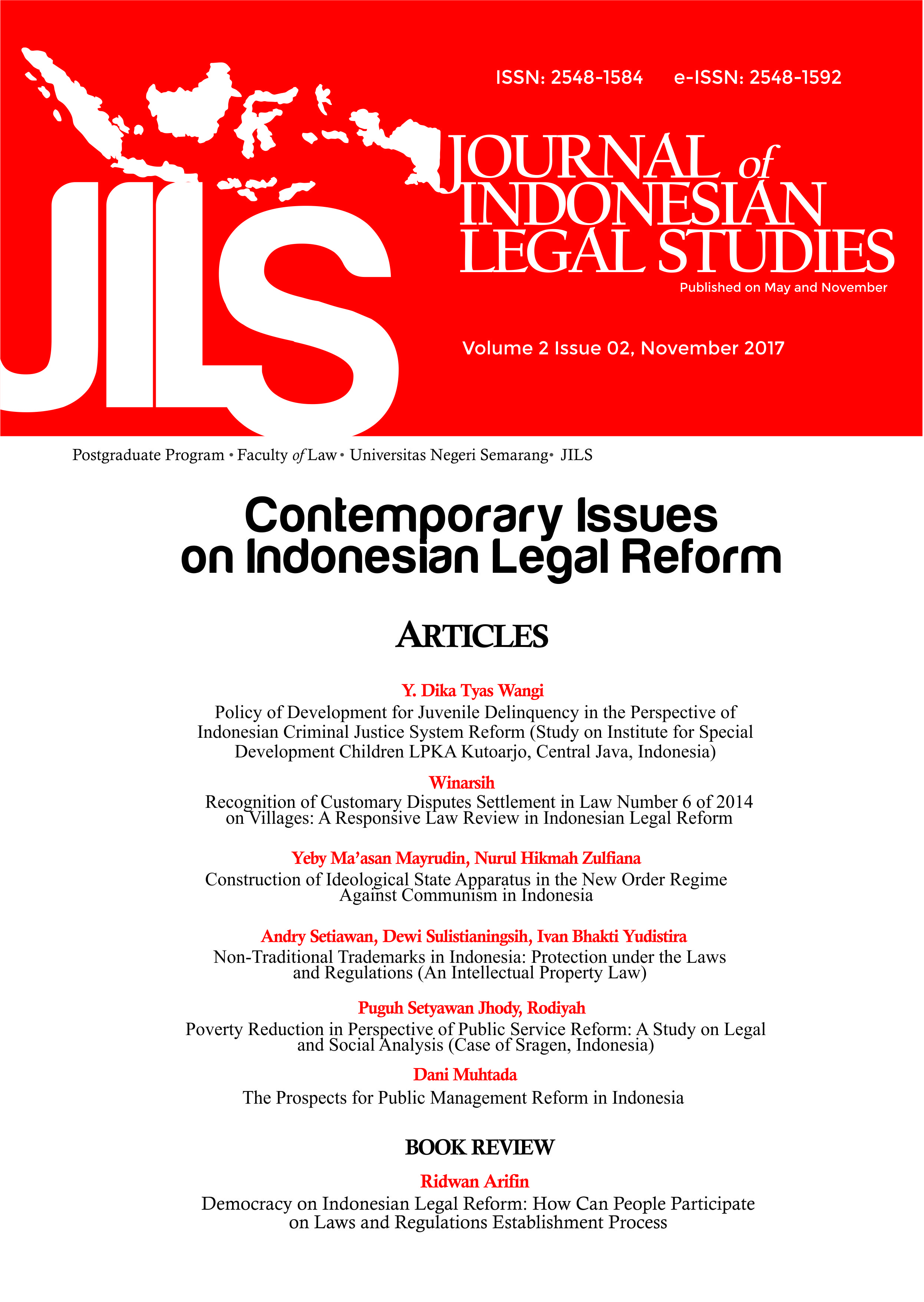Construction of Ideological State Apparatus in the New Order Regime Against Communism in Indonesia
Main Article Content
Abstract
Gramsci’s hegemony theory underlies the theory of ideological state apparatus Althusser studied in this paper, essentially also a repression of power. In empirical life, to create the subjectivity of society, the power paradigm of the New Order era relies heavily on the repressive state apparatus, and the ideological state of the apparatus. The paradigm was also known as state corporatism. This paper discusses two important things related to ideological state apparatus related to communism in Indonesia, namely: (1) the interpretation of communism in the new order regime, and (2) ideological state apparatus in the new order era.
Article Details

This work is licensed under a Creative Commons Attribution-ShareAlike 4.0 International License.
All writings published in this journal are personal views of the authors and do not represent the views of this journal and the author's affiliated institutions. Author(s) retain copyrights under the licence of Creative Commons Attribution-ShareAlike 4.0 International (CC BY-SA 4.0).
References
Beilharz, P. Teori-Teori Sosial, Observasi Kritis Terhadap Para Filosof Terkemuka. Yogyakarta: Pustaka Pelajar, 2005.
Budiman, Arief. Negara dan Pembangunan, Studi tentang Indonesia dan Korea. Jakarta: Yayasan Padi dan Kapas, 1991.
Gramsci, Antonio. Prison Notebook. London: Lawrence and Wishart International Publishers, 1971/1995.
Hendarto, H. Diskursus Kemasyarakatan dan Kemanusiaan. Jakarta: Gramedia, 1992.
Herman, E & Chomsky, N. Manufacturing Consent: The Political Economy of the Media. New York: Sage Publications, 1998.
Hidayat, DN., Gazali, E. dan Ishadi, SK. Pers dalam “Revolusi Meiâ€, Runtuhnya Sebuah Hegemoni.Jakarta: Gramedia, 2000.
Jackson, KD. dan Pye, LW (1978) Political Power and Communications in Indonesia. Los Angeles, London: University of California Press.
Kansil, C.S.T. Hukum Tata Pemerintahan Indonesia. Jakarta: PT Ghalia Indonesia, 1984.
Kasemin, Kasiyanto. Mendamaikan Sejarah: Analisis Wacana Pencabutan TAP MPRS/XXV/1966. Yogyakarta: LKis, 2003.
Robison, Richard. “Indonesia: Tension and State and Regime dalam: R. Hewison dan Rodan (eds). The Political Economy of South-East Asia: An Introduction. Melbourne: Oxford University Press, 1993.
Saparinah Sadli, Prolog dalam Hersri Setiawan, Memoar Pulau Buru. (Magelang: IndonesiaTera, 2004.
Sekretariat Negara Republik Indonesia, Gerakan 30 September Pemberontakan Partai Komunis Indonesia: Latar Belakang, Aksi, dan Penumpasannya. Jakarta: PT Citra Lamtoro Gung Persada, 1994.
